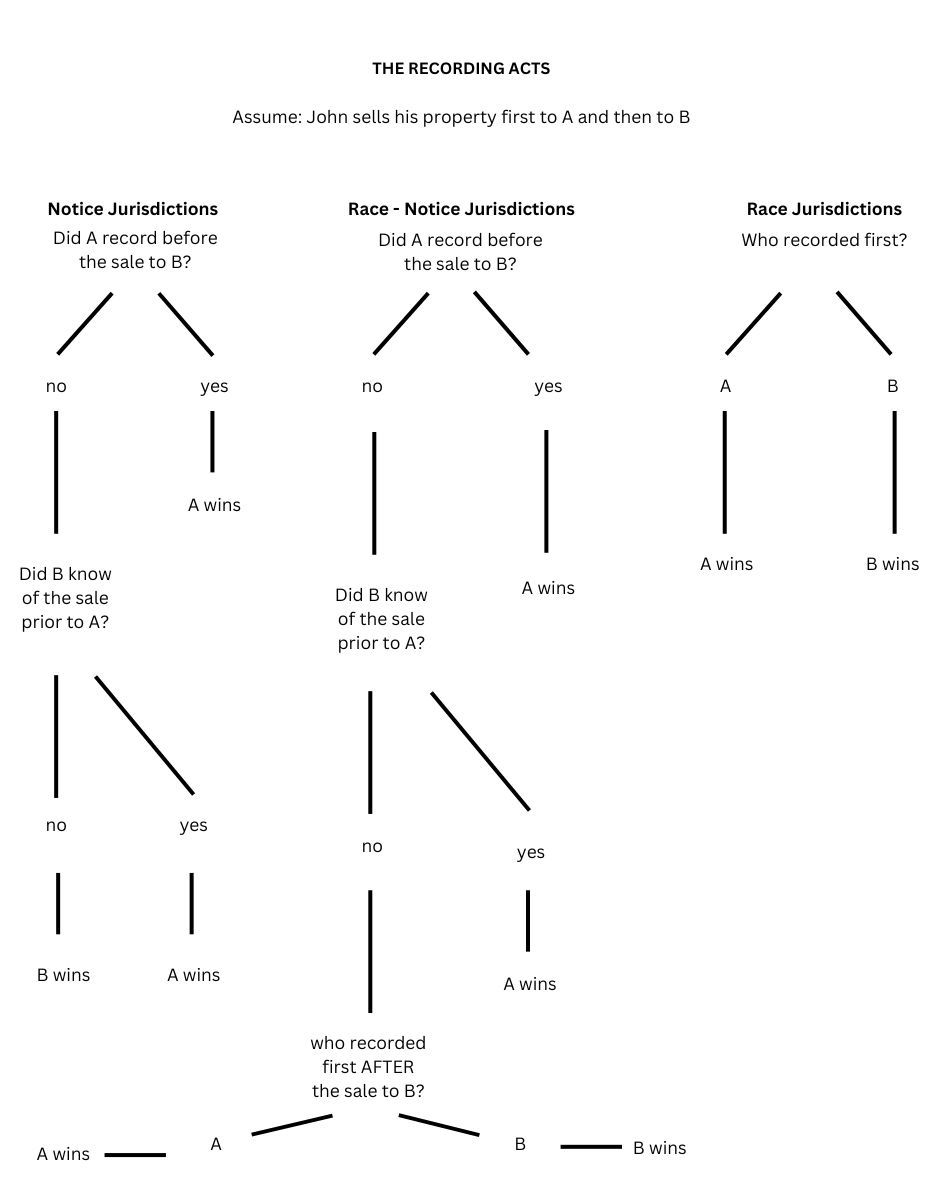Two Buyers, One Property – Who owns it?

If John goes to Title Company A and signs a Deed conveying his property to Buyer 1 at 9:00 am (and gets his check); then
John goes to Title Company B and signs a Deed conveying the SAME property to Buyer 2 at 10:00 am (and gets another check); then
at 11:00 am Title Company A records the Deed to Buyer 1; then
at 12:00 pm Title Company B records the Deed to Buyer 2 . . .
We know John is a crook; but . . . when the dust settles — who owns the property? Buyer 1 or Buyer 2?
Long Answer to a Short Question:
Florida is a strictly NOTICE state.
The purpose of the recording statute is that recording is NOTICE to the World.
Florida Statute 695.01(1): No conveyance, transfer, or mortgage of real property, or of any interest therein, nor any lease for a term of 1 year or longer, shall be good and effectual in law or equity against creditors or subsequent purchasers for a valuable consideration and without notice, unless the same be recorded according to law; nor shall any such instrument made or executed by virtue of any power of attorney be good or effectual in law or in equity against creditors or subsequent purchasers for a valuable consideration and without notice unless the power of attorney be recorded before the accruing of the right of such creditor or subsequent purchaser.
Buyer 1 had the ability to give Buyer 2 notice of the conveyance to him by immediately recording the deed. If Buyer 1 knew Buyer 2 and told Buyer 2 that the property was conveyed to Buyer 1, then Buyer 2 would have notice; however, it would be hard to give everyone personal notice —hence, the reason for the recording statute.
Assuming Buyer 2 did not have actual notice of the conveyance to Buyer 1 (and that would typically be a safe assumption with two different title companies), Buyer 2 was a subsequent purchaser for value consideration and without notice and therefore the conveyance to Buyer 1 was not good and effectual in law or equity against [the] subsequent purchaser (Buyer 2) —and Buyer 2 is the owner of the property.
The way Buyer 1 prevents this is to RECORD immediately so that Buyer 2 has at least constructive notice of the conveyance to Buyer 1.
Therefore, title underwriters emphasize “record immediately” with the closing agents. It is not because “it is a race to the Courthouse;” but that “recording gives constructive notice of the conveyance.”
Delaware, Louisiana, and North Carolina are Race statute states. This means that the first to record without notice wins. In these states, Buyer 1 would prevail.
Alaska, Arkansas, California, Colorado, District of Columbia, Georgia, Hawaii, Idaho, Indiana, Kentucky, Maine, Maryland, Massachusetts, Michigan, Minnesota, Mississippi, Montana, Nebraska, Nevada, New Jersey, New York, North Dakota, Ohio (regarding mortgages, Ohio follows the race statute), Oregon, Pennsylvania (regarding mortgages, Pennsylvania follows Race), South Dakota, Utah, Washington, Wisconsin, and Wyoming are Race/Notice States. In these states, Buyer 1 would prevail.
In addition to Florida, Alabama, Arizona, Connecticut, Illinois, Iowa, Kansas, Missouri, New Hampshire, New Mexico, Oklahoma, Rhode Island, South Carolina, Tennessee, Texas, Vermont, and West Virginia are Notice States.
And as summarized by WestLaw*,
- Race Statute. Under a race statute, the priority interest is the interest recorded first in time. Constructive notice is the only type of notice that matters; actual notice and inquiry notice are not considered.
- Notice Statute. Under a notice statute, a later purchaser of an interest has the priority interest if the later purchaser is a bona fide purchaser. A bona fide purchaser for value cannot have constructive, actual, or inquiry notice of any other claim against the property.
- Race-Notice Statute. Under a race-notice statute, a later purchaser of an interest has the priority interest if the later purchaser is a bona fide purchaser and records the interest first in time. The bona fide purchaser cannot have constructive, actual, or inquiry notice of any other claim against the property.

*Cited from https://content.next.westlaw.com/Glossary/PracticalLaw/Ifd9290fa374911e89bf099c0ee06c731?transitionType=Default&contextData=(sc.Default)&firstPage=true
